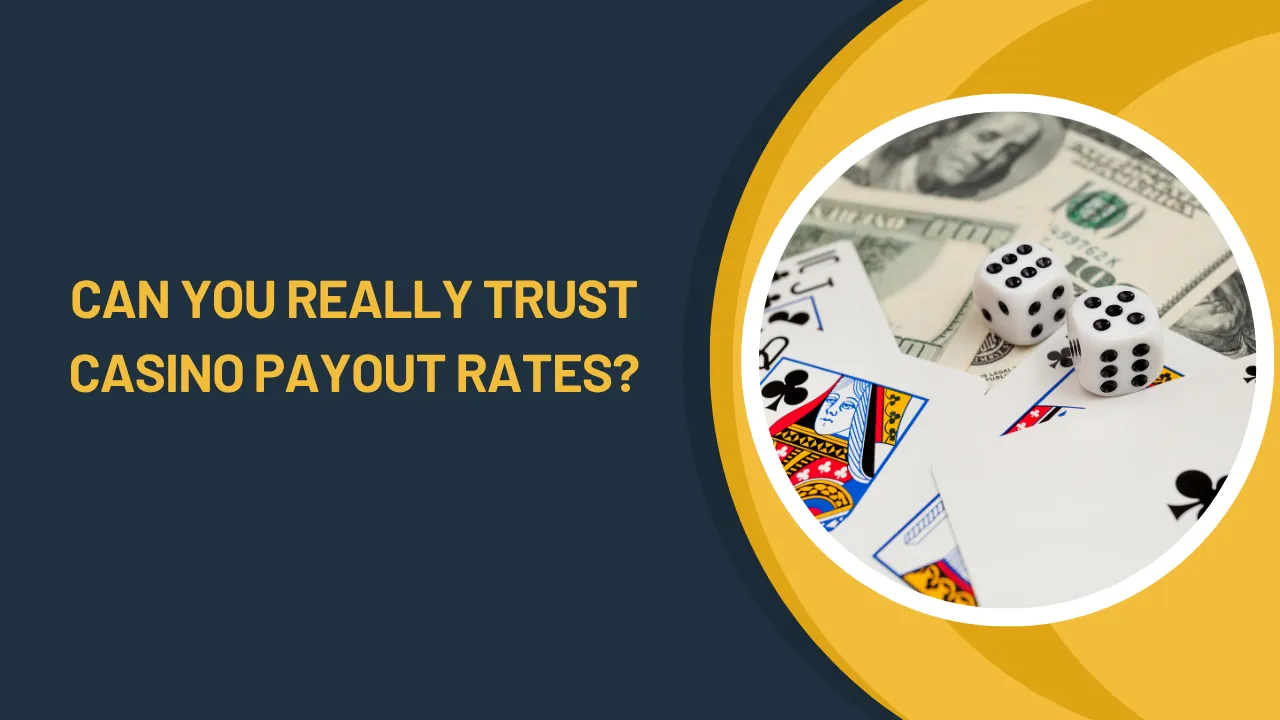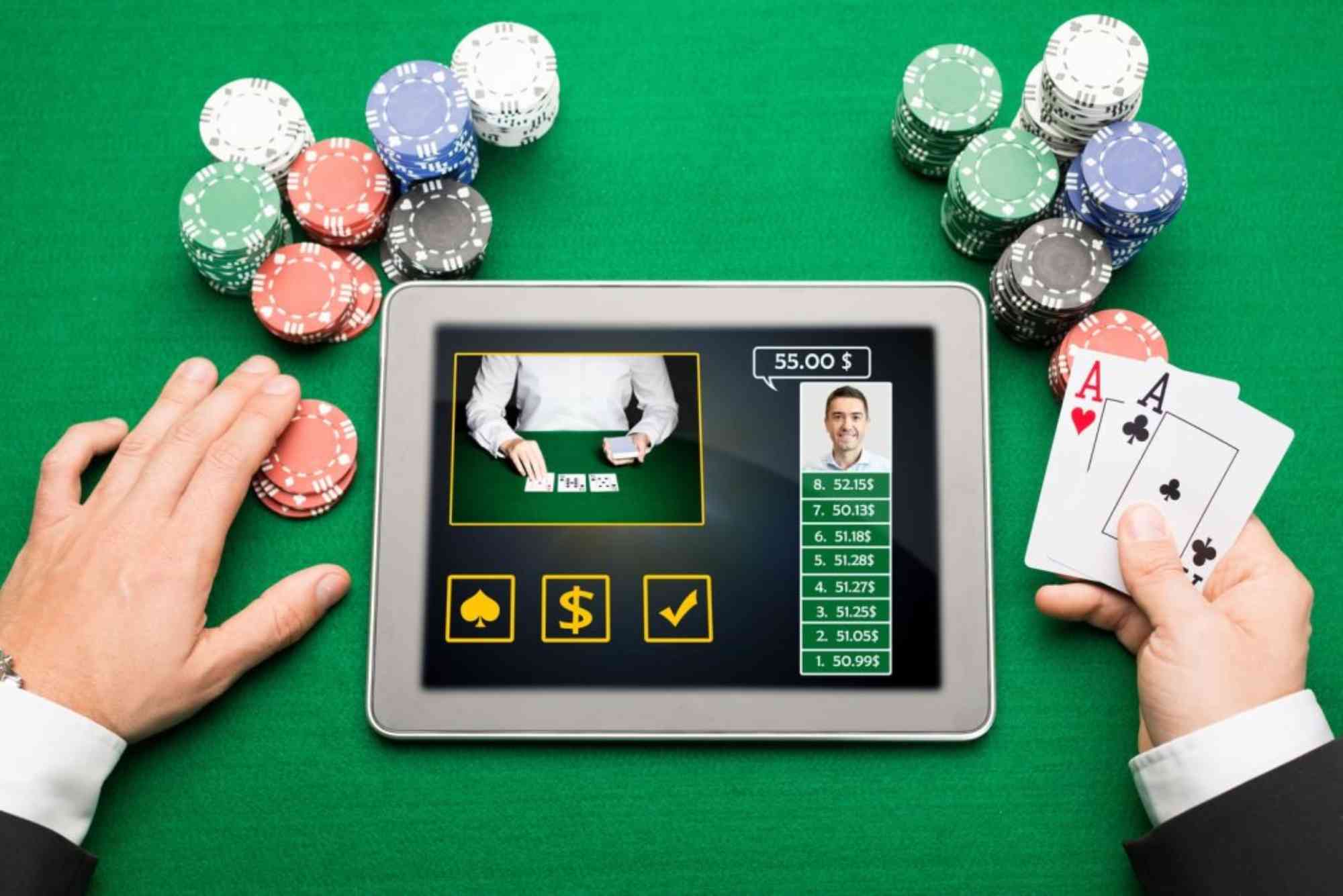When you play at an online casino, one of the first things you might notice is the “payout rate” or “return to player” (RTP) percentage displayed next to games. You’ll see numbers like 96%, 97.5%, or even 99%, all promising that a portion of bets are returned to players over time. But how trustworthy are these figures? Do they really reflect your chances of winning — or are they marketing tools designed to give you confidence while the odds quietly favor the house?
As someone who’s been following the online gambling industry for years, I’ve seen both the transparency and the trickery behind payout statistics. The truth is, RTPs are reliable — but only within context. Understanding how they’re calculated, who verifies them, and what affects your real-world results can help you decide which casinos deserve your trust.
What Exactly Is a Casino Payout Rate?
In simple terms, a casino payout rate (or RTP) represents the average percentage of all wagered money that a game returns to players over time. For example, if a slot machine has a 97% RTP, it theoretically returns £97 for every £100 wagered. The remaining £3 represents the house edge — the built-in profit margin for the casino.
It’s important to understand that RTP is not a guarantee. It’s calculated over millions of spins or rounds, meaning your personal experience could vary wildly. You might win big in one session or lose everything quickly, even on a game with a high RTP. The figure only reflects the long-term performance of the game, not short-term luck.
The Role of Testing and Certification
Most reputable casinos rely on independent testing agencies like eCOGRA, iTech Labs, or GLI to audit their games. These organizations test the random number generators (RNGs) that determine outcomes and verify that payout rates are statistically accurate over time.
In licensed jurisdictions like the UK, Malta, or Gibraltar, regulators require these audits before casinos can legally operate. The results are often published publicly, either on the casino’s website or the testing agency’s portal. This system of third-party oversight is one of the key reasons why regulated casinos can generally be trusted when they display an RTP value.
However, not every online casino follows these rules. Offshore operators that aren’t bound by UKGC regulations may publish figures that sound appealing but are never verified. That’s why understanding where a casino is licensed — and whether it’s subject to third-party audits — matters as much as the numbers themselves.
Comparing Regulated and Independent Casinos
For players who prefer flexibility, bonuses, and fewer restrictions, non gamstop casinos have become a popular alternative. These platforms operate outside the UK’s self-exclusion scheme and often attract players looking for a freer gaming experience.
While many of these sites are legitimate and even licensed in other jurisdictions, not all follow the same strict auditing standards as UK-licensed casinos. Some might use certified software providers, ensuring their payout rates are genuine. Others, however, may run proprietary games that haven’t been independently verified.
This doesn’t mean all non-GamStop casinos are untrustworthy — far from it. Many of them offer transparent information about RTPs, work with recognized providers, and even publish audit results. But because the oversight differs, players must take a more active role in verifying the fairness of the games. Always check for licensing details (usually at the footer of the site), the names of testing agencies, and the reputation of the game developers themselves.
Why Some Games Have Different RTPs at Different Casinos
You might assume that a specific slot — say, Starburst or Book of Dead — has a fixed payout rate everywhere. Surprisingly, that’s not always the case. Many software providers now release multiple versions of the same game, each with a different RTP.
For example, one casino might offer Starburst with a 96.1% RTP, while another might use a 94% version. The difference may not seem huge, but over time, it affects your potential return. Casinos with lower RTP versions tend to profit more from the same player activity, so always check the game’s information page before you start spinning.
This practice is perfectly legal, but it underscores the importance of transparency. A trustworthy casino will always disclose the RTP for each game, while less scrupulous sites may hide or misrepresent these details.
The Impact of Bonuses and Wagering Requirements
Payout rates can also be affected indirectly by casino bonuses. Many players forget that promotional offers — such as deposit matches or free spins — come with wagering requirements. These rules often mean you need to bet your bonus money many times over before you can withdraw any winnings.
In practical terms, even if you play a game with a 97% RTP, your real return may be lower because of how bonus conditions are structured. Casinos count on this. They use high RTP figures to attract players while maintaining profitability through bonus terms. Understanding how these two factors interact is crucial to evaluating whether a casino truly offers good value.
RNGs: The Hidden Engine Behind Every Game
At the core of every digital casino game lies the random number generator (RNG) — the algorithm that ensures outcomes are unpredictable and independent. A fair RNG means that each spin or hand is unique, unaffected by past results or betting patterns.
Reputable casinos regularly test and publish RNG certification details. If a casino hides this information, it’s a red flag. Randomness is essential for trust — and without transparency, there’s no way to confirm that a game’s payout rate isn’t being manipulated.
Offline casinos have physical randomness (like dice or wheels), but online gaming relies entirely on code. That’s why licensed operators invest heavily in verified RNG systems — it’s the foundation of fair play and the primary factor supporting any published payout rate.
The Psychology Behind Payout Percentages
Casinos understand that numbers influence behavior. Displaying a 98% RTP can make players feel safer or more confident about their chances, even though the house always wins in the long run. It’s a psychological play — one that encourages longer sessions and more bets.
However, players who understand the math can use RTP wisely. Instead of seeing it as a promise, see it as a probability guide. Games with higher RTPs are statistically better choices over time, especially for players who manage their bankroll carefully and avoid emotional betting. The more informed you are, the less likely you are to fall into the illusion that a “fair” payout rate guarantees short-term wins.
How to Verify a Casino’s Trustworthiness
If you want to know whether a casino’s payout rates are genuine, start with a few simple checks:
Look for a valid gambling license number and verify it on the regulator’s website (e.g., UKGC, MGA, Curaçao).
Scroll to the footer for testing agency logos such as eCOGRA, iTech Labs, or GLI.
Check game info screens for RTP details — legitimate casinos make this easy to find.
Read player reviews on independent forums; consistent payout complaints are a warning sign.
Even with these steps, remember that your personal results will always vary. Payout rates work over long statistical cycles, not individual play sessions.
The Future of Casino Transparency
The gambling industry is slowly becoming more transparent, largely due to pressure from regulators and informed players. Blockchain technology and provably fair algorithms are already being introduced in some casinos, allowing anyone to verify the fairness of each spin in real time.
This level of transparency could redefine trust in gaming. When players can audit results themselves, published payout rates will no longer be just marketing figures — they’ll become verifiable facts. Until then, awareness remains your best defense. The more you understand about how payout rates work and how they’re verified, the safer your gaming experience will be.
Conclusion
So, can you really trust casino payout rates? The answer is yes — but with conditions. When playing at regulated, audited, and transparent casinos, payout percentages accurately reflect long-term averages. However, not all platforms are equally honest. Players must look beyond flashy numbers and check licenses, RNG certifications, and testing agency credentials before trusting any figure.
Ultimately, understanding payout rates empowers you as a player. Whether you’re exploring UK-licensed platforms or trying international options, knowledge is the key to responsible gaming. The casino will always have an edge — but that doesn’t mean you can’t play smart.




